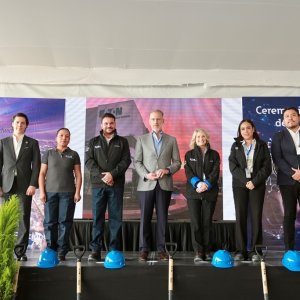Queretaro Sees Bright, Sustainable Future

STORY INLINE POST
Q: How will the aerospace industry contribute to the economic development of both Queretaro and the country?
A: The aerospace industry is part of the transportation equipment sector, which represents almost 30 percent of our manufacturing GDP. The sector has large production value and generates numerous jobs. Aerospace was among the sectors most damaged by the pandemic and we are focused on helping it rebuild. We have noted clear signs of recovery in terms of value and jobs generated.
Aerospace provides an added value to Queretaro and it is important for us to continue providing these companies with the certainty they require to continue growing and evolving in the state. All our efforts focus on attracting, maintaining and expanding investments in Queretaro. We are working hand in hand with the industry and academia to ensure the industry’s growth. The future is bright for the aerospace industry in Queretaro.
Q: How is Queretaro pushing for greater sustainability in manufacturing operations?
A: The Ministry of Sustainable Development has two main tasks: promoting economic development and taking care of the environment. An objective that addresses both tasks is decarbonizing the state’s economy. We have developed public policies and programs to fight climate change and foment a circular economic system.
The state’s industry is also working to develop projects that contribute to the fight against climate change, avoiding the use of materials that damage the environment, for example. Last year, we launched 15 new projects along these lines but there is still a long way to go.
Q: How does the ministry support the economic recovery of the state?
A: In 2021, we launched an economic program focused on economic recovery that prioritized the generation of jobs. Another key concern was the attraction of new companies to the state to ensure it remains a competitive destination.
A different strategy was to establish and promote technological innovation programs. This project has successfully helped companies adopt artificial intelligence, big data and cloud computing. We have also been supporting innovative companies that are developing technology. Generating value through innovation and technology will help us expand the state’s economy, a strategy that has proven successful to date.
We are also financing SMEs and helping them find investments to continue their vision, focusing on supporting the state’s mining, tourism and service industries.
Q: How is economic recovery related to sustainable development and what are the main obstacles in both areas?
A: Many economies are prioritizing economic recovery over environmental care. We have developed an environmental agenda that helps prioritize both the economy and the environment. The main objective is to reduce our carbon footprint, in part through low-carbon certificates for companies. We are also developing mechanisms to compensate companies that care for the environment and are introducing environmental taxes on those that pollute.
Our goal is to develop, promote and advance our economy by attracting investments and supporting SMEs, while always considering the impact of our economic activities on the environment.
Q: What are the main challenges delaying the state’s economic recovery?
A: We have identified several main challenges affecting the state. The first is security and we aim to continue strengthening the state’s personal and financial security. The second challenge is to continue enabling the growth of the companies in our state. The third is providing the necessary infrastructure to meet the state’s electricity demand. The fourth is ensuring the availability of water for the next 50 years. The last challenge is mobility.
Q: How are you collaborating with industry associations to better promote the state among potential investors?
A: We have always collaborated with industry associations, such as commercial chambers and clusters. We are on the same side of the table and this helps anyone interested in collaborating with the state. We work as a state, not as separate companies or industries.
Marco Antonio Del Prete has been the head of Queretaro’s Ministry of Sustainable Development (SEDESU) since 2015 and was appointed for a second six-year term in 2021.








 By Sofía Hanna | Journalist and Industry Analyst -
Fri, 04/22/2022 - 11:12
By Sofía Hanna | Journalist and Industry Analyst -
Fri, 04/22/2022 - 11:12
















